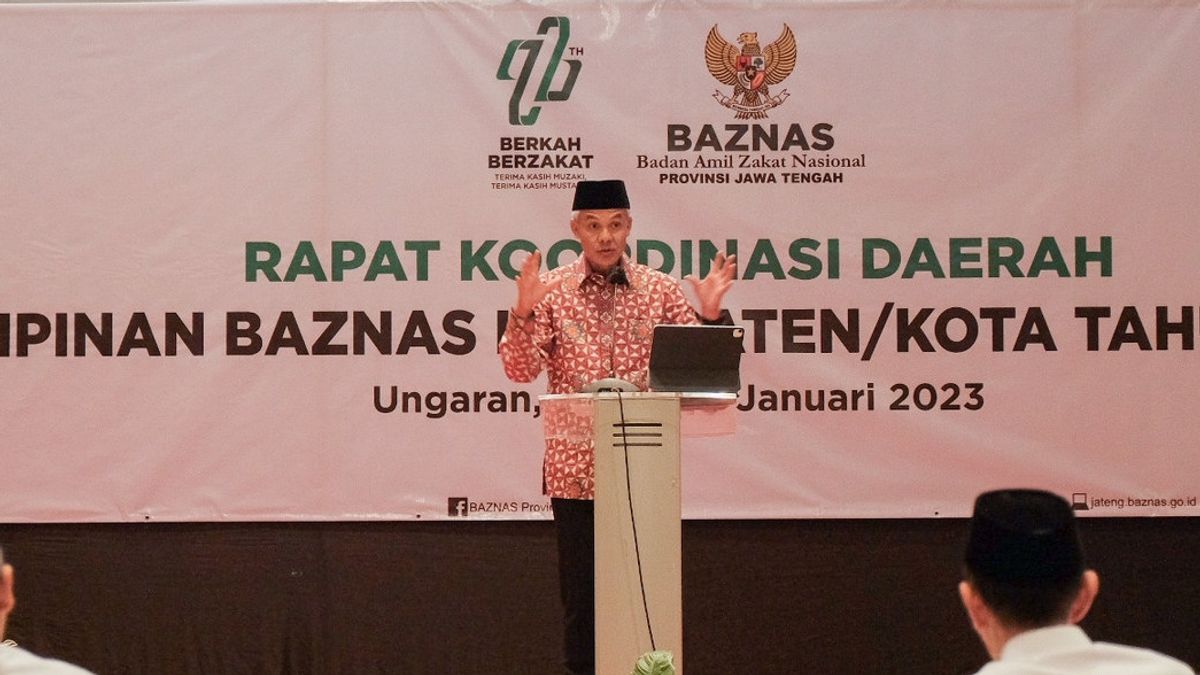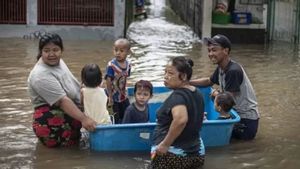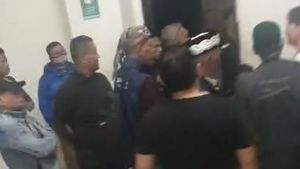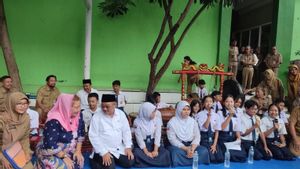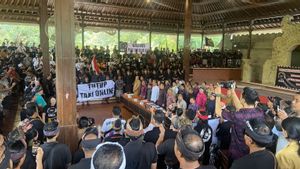The Governor of Central Java, Ganjar Prabowo, appreciated Baznas for collecting zakat from the State Civil Apparatus within the Central Java Provincial Government for up to IDR 82.6 billion in 2022. That number increased from the previous year's IDR 57.2 billion.
This amount is expected to be used more for the productive sector in the context of reducing extreme poverty in Central Java.
"We discussed with Central Java Baznas (Central Java) so that we can now direct the performance (of use) to productive matters," said the Governor at the Regional Coordination Meeting for the Regional Leadership of BAZNAS Regency/City in Semarang Regency, Monday, January 23.
The success of managing ASN zakat, through the payroll system (payout) that has been successfully carried out in the Central Java Provincial Government, according to the Governor also needs to be implemented in his district/city. Even this system can not only be used in the government but also in the private sector.
We try to encourage the city district. The Karanganyar has even been practiced in companies and hotels. We try to move this (direct) there so that later company employees can also be facilitated to pay zakat by Baznas, we are ready to help the system," he said.
This zakat management by Baznas, then is overlayed (coupled) with poverty reduction programs.
We then tried to encourage us to overlay (includ) poverty reduction, where Baznas has a very good role, "continued Ganjar in his statement.
Regarding the duplication of the zakat collection system in the regions, the Governor encouraged urban districts in Semarang Raya to become pilot projects for the implementation of this Payroll System. On the other hand, regions that have implemented this system can be examples and places of knowledge sharing.
"Later we will try to push it there so that it is much more optimal and the role will be even bigger," he said.
On that occasion, the Chairman of the Central Java Baznas, KH Ahmad Darodji, in his remarks appreciated the Governor's support in assisting Baznas' efforts in increasing the number of zakat.
"This is all with the help and encouragement of the Governor of Central Java," said Darodji.
Darodji explained, in accordance with statutory provisions, as much as 70 percent of the funds raised must be distributed to the Zakat Recipient Unit. Meanwhile, the remaining 30 percent is managed by the Central Java Baznas to be distributed to underprivileged communities, both for consumptive and productive needs.
Darodji said the outline of the tasaruf allocation in 2022 was divided by 55 percent for consumptive tasaruf and the remaining 45 percent for productive tasaruf. Tasaruf consumptive is a caritative tasaruf, namely aid is not directly related to poverty alleviation," said Darodji.
Including assistance to repair uninhabitable houses and latrines, a total of 1,133 units. According to him, this is a form of Baznas' commitment to participate in helping efforts to work together to deal with extreme poverty in Central Java which is coordinated with the Public Housing and Settlement Service (Disperakim).
"We hope that in 2023 there will be no less than 1,000 RTLHs that we can help and God willing, it will increase with the RTLH Baznas RI program which is allocated to Central Java," said Darodji.
While the executor of the productive tasaruf, Baznas Central Java has carried out job training, provision of capital assistance and scholarships. To date, there are a total of 15 types of job training targeting various groups.
"Regarding the provision of small business capital assistance, until September 23, the number of 6,000 people was Rp. 2.5 million each and according to a four-month evaluation, 85 percent of this program was successful," he said.
In the future, Darodji hopes that his party can change the pattern of allocation of zakat distributors to 40 percent consumptive tasaruf and 60 for productive tasaruf. "We realize that we haven't done much. But we believe that something has been felt by the community. We ask for encouragement and prayers to be better," he said.
The English, Chinese, Japanese, Arabic, and French versions are automatically generated by the AI. So there may still be inaccuracies in translating, please always see Indonesian as our main language. (system supported by DigitalSiber.id)
